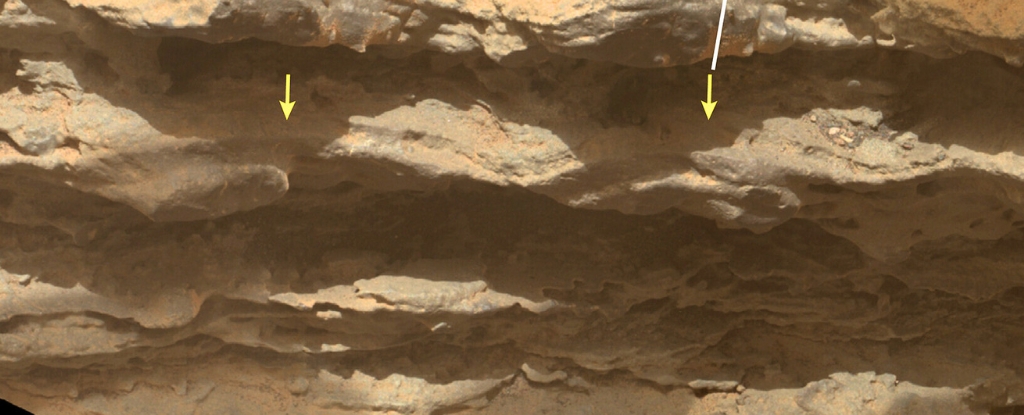ARTICLE AD
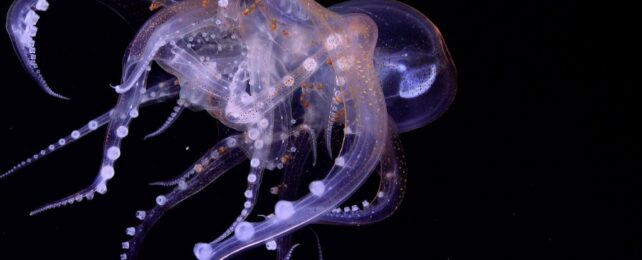 An unsual sighting of the glass octopus (Vitreledonella richardi) recorded by the team. (Schmidt Ocean Institute)
An unsual sighting of the glass octopus (Vitreledonella richardi) recorded by the team. (Schmidt Ocean Institute)
A secret land of wonders awaits those who dive deep under the ocean off the coast of Costa Rica.
There, some 2,800 meters (almost 9,200 feet) below the surface, in nooks and crannies shimmering with heat seeping from the seafloor, huge numbers of pearly octopuses nestle, incubating their precious young. It's a jaw-dropping sight.
Discovered just last year, the site at Tengosed Seamount is a rare octopus nursery tucked away in the dark bathypelagic, a place ordinarily considered too cold for delicate cephalopods. Yet warmth provided by volcanic seamounts creates temperatures perfect for nesting, for a number of different octopus species.
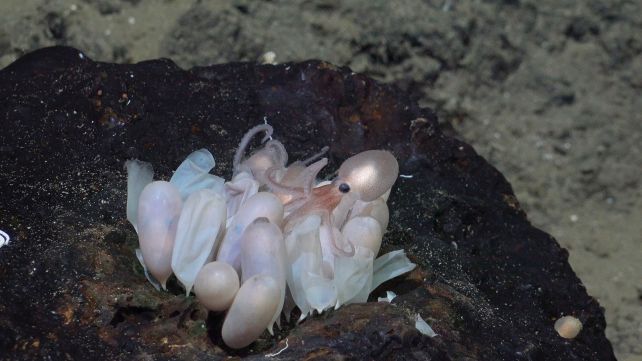 A baby octopus emerging from an egg at Tengosed Seamount. (Schmidt Ocean Institute)
A baby octopus emerging from an egg at Tengosed Seamount. (Schmidt Ocean Institute)So diverse is the assembly, in fact, that scientists have now identified four previously unknown species of octopus tending their eggs in the Octopus Garden.
"Through hard work, our team discovered new hydrothermal springs offshore Costa Rica and confirmed that they host nurseries of deep-sea octopus and unique biodiversity," says oceanographer Beth Orcutt of the Bigelow Laboratory for Ocean Sciences.
"It was less than a decade ago that low-temperature hydrothermal venting was confirmed on ancient volcanoes away from mid-ocean ridges. These sites are significantly difficult to find since you cannot detect their signatures in the water column."
The discovery, and subsequent observation expeditions, were not made by humans in person; that would be rather difficult to manage. Rather, a remotely operated underwater vehicle, the R/V Falkor, made repeated dives to the Octopus Garden, collecting extensive imagery and, in December of last year, over 160 deep-sea specimens to help identify and catalog the site's incredible biodiversity.
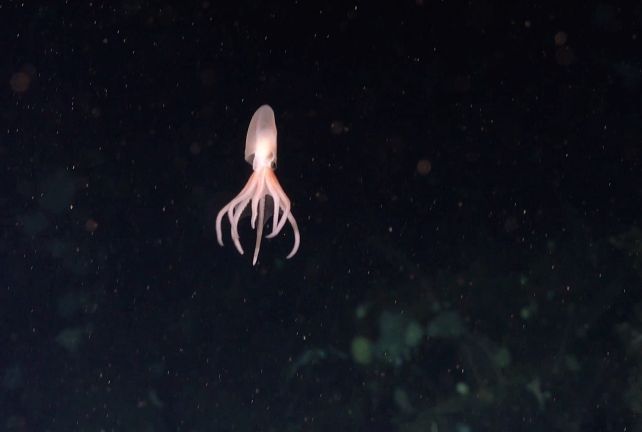 An octopus hatchling at El Dorado Hill. (Schmidt Ocean Institute)
An octopus hatchling at El Dorado Hill. (Schmidt Ocean Institute)The four new octopuses have been identified among that collection and are currently being described by researchers, with their findings to be published in the near future.
Of the four octopuses, only one was discovered brooding at a hydrothermal vent; it's a species of Muusoctopus, related to other Muusoctopus species found in the area. Scientists are calling it the Dorado octopus, because it was found on an outcrop nicknamed El Dorado Hill.
Several other seamounts nearby have also been found to host nesting octopuses, starting with the discovery of the Davidson Seamount in 2018, where thousands upon thousands of the animals collect to watch over their young. The density of the community, unusual for animals not known for being social, suggests that Muusoctopus species evolved in such a way that they need the hydrothermal vents to procreate.
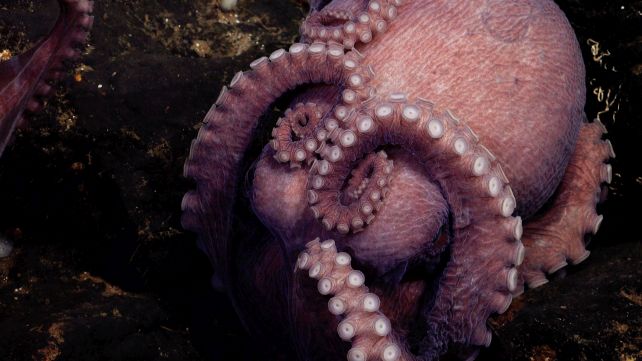 A mother octopus brooding her eggs near El Dorado Hill. (Schmidt Ocean Institute)
A mother octopus brooding her eggs near El Dorado Hill. (Schmidt Ocean Institute)Research released last year found that the warmth provided by the vents reduces the incubation time of the eggs, and boosts the growth of the embryos and the metabolisms of the mothers. But there's still a lot we don't know about this mysterious process.
There's a lot we don't know about the deep ocean, too. Other discoveries include hydrothermal regions separated by relatively short distances, but with different temperatures and chemistries, suggesting that whatever is driving them is different in each case.
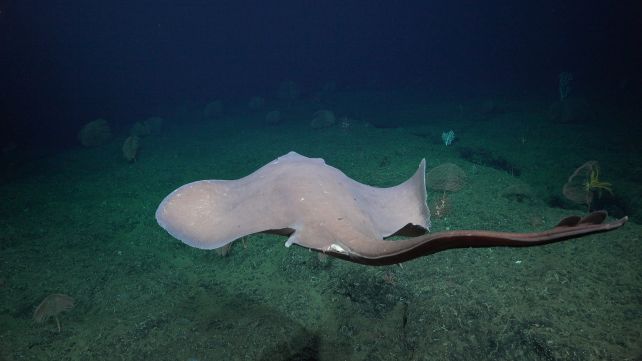 A thriving skate nursery was also found at the top of Tengosed Seamount. (Schmidt Ocean Institute)
A thriving skate nursery was also found at the top of Tengosed Seamount. (Schmidt Ocean Institute)Octopuses, the researchers also found, aren't the only creatures using the seamounts to nest. The team also found a deep-sea skate nursery, which they have nicknamed Skate Park. More research and observation should help us learn more about this fascinating place.
"The impact of the R/V Falkor … expeditions on understanding the deep Pacific waters of Costa Rica will last into the future and hopefully create awareness that evolves into policies to protect the deep sea of the country," says marine biologist Jorge Cortés of the University of Costa Rica.
"I hope that the expedition serves as an inspiration for new generations. We need more international collaborations to advance knowledge of our deep-sea heritage."

 1 year ago
100
1 year ago
100 

